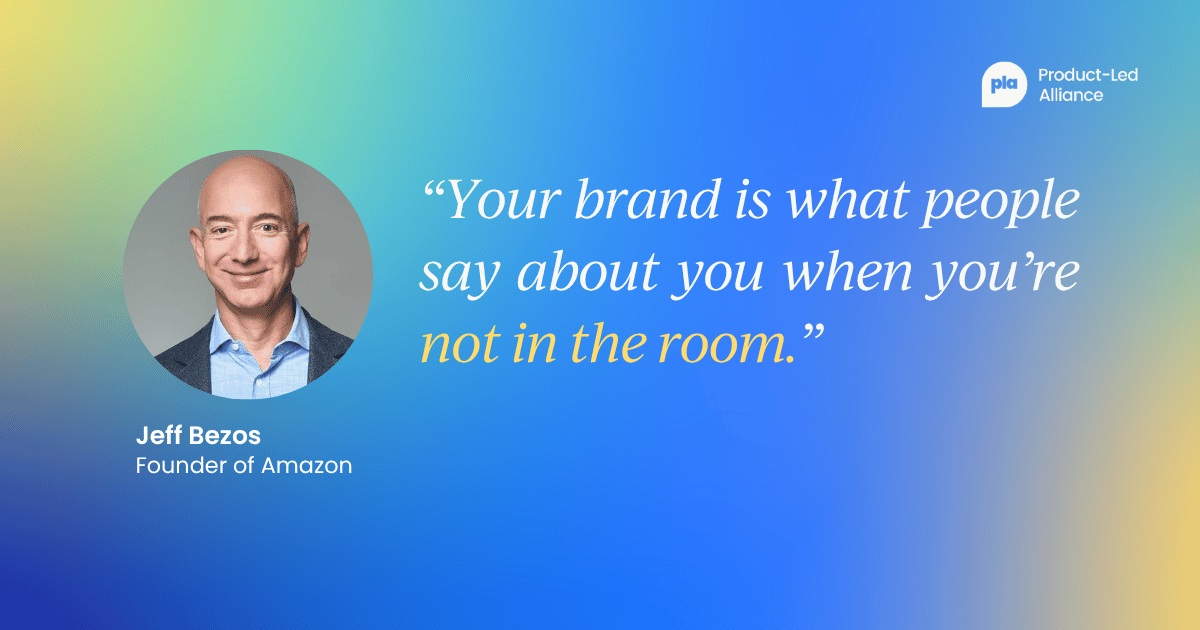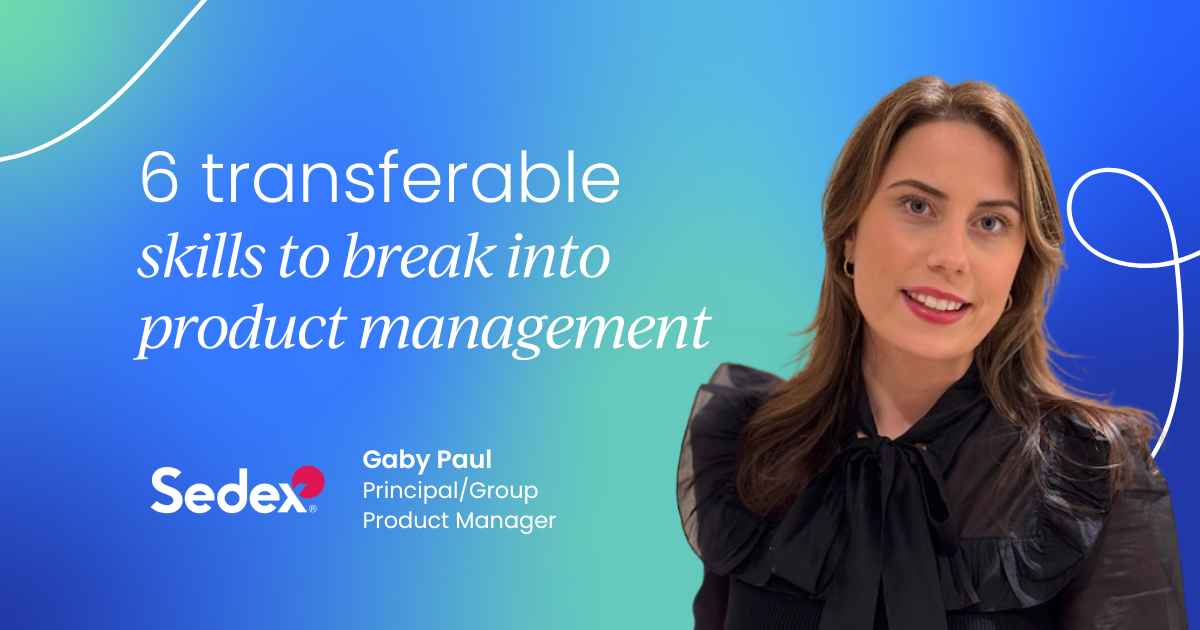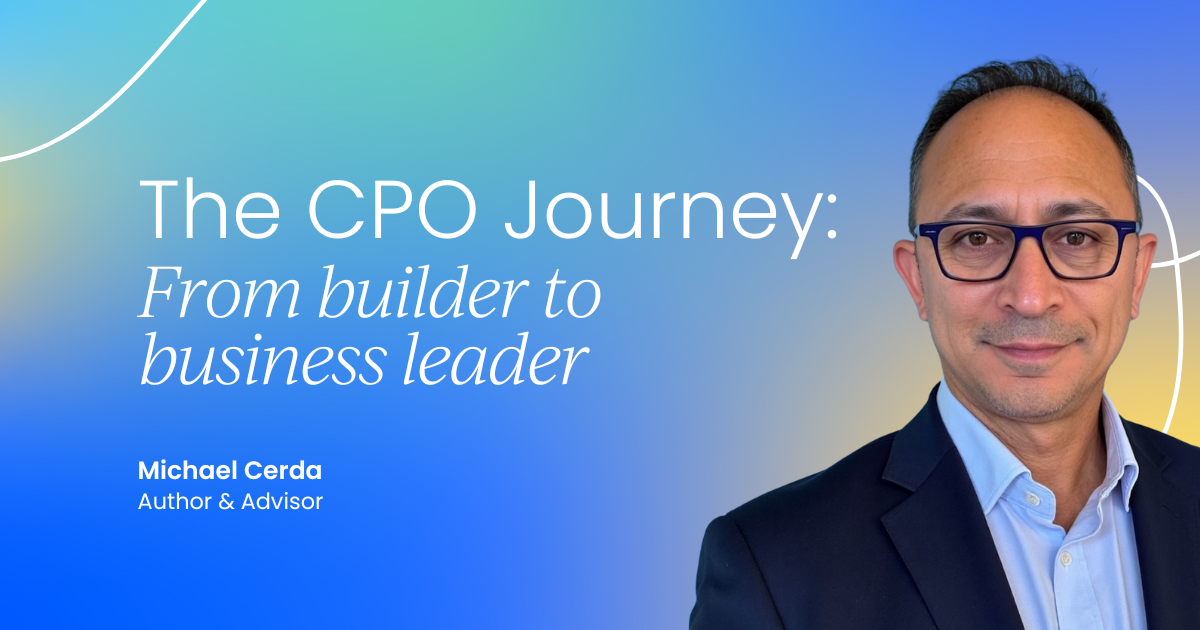If there’s one thing I believe can truly make or break your career, it’s your personal brand.
Whether you're climbing the corporate ladder or trying to stand out in a competitive market, the way you present yourself, intentionally or not, matters more than ever.
In this article, we’ll explore what personal branding really means, why it’s so important, and how to develop a strong brand that sets you apart.
What is a personal brand, really?
A personal brand is all about how others, such as your colleagues, senior management, stakeholders, and wider network, perceive you. It’s made up of a combination of your personality traits, skills, values, work ethic, and overall reputation.
As Jeff Bezos said, “A brand is what people say about you when you’re not in the room.”

A strong brand at work is so important because it shapes how others perceive your value, and that value often influences your opportunities more than your actual skills alone:
- It builds trust and credibility.
- It sets you apart from others.
- It enables career growth.
- It attracts future opportunities.
Having moved quickly in my own career, I’m often asked how I did it. Alongside being a “sponge” – soaking up as much knowledge as possible from others – I take pride in the personal brand I’ve created for myself, and I truly believe that’s made a huge difference.

How to know if you’ve nailed your personal brand
Here are some signs that you've started to create a strong personal brand within your organization:
- Your colleagues, senior leaders, and even your customers know who you are and what you stand for without needing an introduction. Your name is associated with quality, reliability, or a specific area of expertise.
- Your communication style, actions, and performance align with your values and reputation. People know what to expect from you and that they can rely on you.
- You have a voice in meetings, people seek your input, and your ideas often carry weight, even if you're not in a leadership role. In product management, this is incredibly important as the most successful PMs need to be able to challenge and recommend ideas.
- You're often approached for new projects, mentorship of colleagues and peers, or external opportunities like attending events or overseas travel due to your visible contributions and reputation.
I feel incredibly lucky for the opportunities I have had in my career, from leading the top strategic product initiatives, to travelling abroad multiple times to present the latest product updates to our members.
These opportunities don’t just get handed to you; they’re earned.
- Others trust you to deliver and represent the team or organisation well. They know they don’t need to worry if you’re involved.
- Your personal brand reflects who you genuinely are, making you relatable and trustworthy.
I take pride in being my most authentic self at work, using humour to lighten the mood in meetings (where appropriate) and actively recognising other people’s accomplishments in front of influential stakeholders.
This helps my colleagues get to know me on a personal level but also shows my commitment to supporting other people’s success.
- People can clearly articulate what you bring to the table (e.g., “She knows everything there is to know about our platform and users” or “He’s great at bridging technical and non-technical teams”). For me, it’s feedback like “You inspire and motivate teams” which means a lot, as aligning and energising people is something I deeply care about.

The factors hurting your personal brand
In an ideal world, everyone would be seen in the best possible light at work, however, the reality is that certain traits or behaviours can significantly impact your personal brand, and once your reputation takes a slight beating, it can be challenging to change people’s perception of you and build trust.
It’s important to recognise these traits and work through them if you want to become invaluable. These are the most common pitfalls I see and often coach people through:
Negative attitude
It’s normal to feel frustrated at work sometimes, especially if you’re under pressure or your company is going through a lot of change.
However, if you’re seen frequently expressing frustration, gossiping, or focusing on problems without offering solutions, people are likely to label you as disruptive.
One key piece of advice I would give is to consider your audience, pick your battles, and frame your feedback in a constructive way that enables action.
Inconsistency
Missing deadlines, changing approach frequently, or being unreliable can confuse or damage trust. My top tip for handling this is to set realistic expectations and over-communicate.
Things change all the time, additional complexity arises, and stakeholders go off sick for a month. Most people aren’t ignorant of this; however, if they find out last minute that you’re going to miss a deadline, and you could have notified everyone sooner, it won’t land well.
I believe honesty is the best policy, so if issues crop up and you’re going to miss a deadline, let senior management know, as they might be able to bring in additional resources to help.
Lack of accountability
Passing the blame or dodging responsibilities undermines your credibility and integrity. Even if something wasn’t entirely your fault, owning your part and learning from it builds long-term respect.

Staying in the background
If others don’t know what you do, or never hear your voice, your value can be overlooked or underestimated.
I’ve met a lot of people who are shy by nature and don’t always feel comfortable speaking up in group settings. If that is the case, start small by building your 1:1 stakeholder relationships, where it should be slightly less daunting.
Poor communication
Long-winded, unclear, or off-topic messages can create misunderstandings and reduce your influence.
I see this a lot and have probably been guilty of it myself at times, but my advice is – think before you speak, consider the message you’re trying to convey, and know that sometimes less is more.
This is something that I have learnt with experience - you don’t always need to add your opinion for the sake of it.
Resistance to feedback or change
Being defensive or dismissive of change can make you seem un-coachable or “stuck in your ways”. Actively seeking feedback from your peers, stakeholders, and leaders is a fantastic way to grow and develop your personal brand.
Stay open to new ways of working and embrace different ideas from those around you. If you strongly disagree with an approach, find constructive ways to build a compelling argument for why you think it could be done differently.

How to strengthen your personal brand
If you feel like you have a strong personal brand already, then well done, you’re already in a great place! However, the way you’re perceived in the workplace is something you should consistently work on to maintain a positive reputation and make sure you’re staying ahead.
Articulate your strengths
Understand and articulate what you do best, what sets you apart, and how you contribute to your team or company’s success. Have confidence in your abilities and the value you bring. Alongside this, focus on delivering high-quality work on time and follow through on commitments.
Build connections
Build and maintain genuine connections across different levels and departments. A strong network increases your visibility, reputation, and trust.
If you want to be included in decision-making or presented with new opportunities, you need to be known.
An easy way to do this is to introduce yourself to new starters or spark a conversation next time you’re making a coffee in the office. Showing an interest in what your stakeholders are working on is a great way to build relationships and may also generate some new ideas for you to take back to your team.
Volunteer for growth inititives
Volunteer for high-impact or cross-functional initiatives. As I said before, opportunities rarely just come to you. If you want to be taken seriously and demonstrate your potential, speak to your manager or colleagues, and make it known that you would like to take on a new challenge or project to showcase your capabilities.

Share your success
This is a careful line to tread as you don’t want to come across as boastful, but it’s crucial that your colleagues and leadership are aware of your achievements.
It’s easy to assume they already know what you’re doing, but in many cases, they don’t. Find ways to share your successes through team meetings, performance reviews, or casual conversations.
For instance, a member of my team slipped into conversation that she proactively asked account managers if she could sit in on their customer calls every week for continuous discovery. I have since suggested others do the same, using her as an excellent example for taking initiative and role modelling great product practice.
Become known for something
Finally, become known for something that people associate with you. I’ll never forget a colleague of mine describing me as “unflappable” a few years back, and I love that. It’s very easy to crumble under stress in product, but somehow, I manage to stay composed (most of the time) and pause before I speak or make a decision.

Strengthening your brand on social media
Whether you’re on the hunt for a new role or trying to grow your followers on LinkedIn, it’s always worth considering how you want to be perceived and what will draw others towards your content.
My top tips for building a strong brand on LinkedIn:
1. Pause before you react.
LinkedIn is a space for professional connection and learning, so be intentional about what you engage with. Your likes and comments are visible to your network and reflect your personal brand, even when responding to something humorous or controversial.
2. Celebrate achievements.
Share your successes, and those of your team, in a way that feels authentic and humble. It gives your network a window into your capabilities while building trust and relatability.
3. Engage with others meaningfully.
Don’t just scroll, take the time to comment and congratulate others on posts. Meaningful engagement helps you build your network, boosts your visibility, and positions you as an active and supportive member of your professional community.
4. Provide value in your content.
Focus on sharing content that informs, supports, or inspires your network. When you consistently offer something useful, whether it’s a resource, insight, or a thoughtful perspective, people are more likely to engage with you and remember your name.
Time to reflect
Take a moment and ask yourself – what do people associate with me? Is it leadership, empathy, strategic thinking, positive energy, or something else?
Whatever it is, make sure it reflects who you genuinely are, and then build on it with intention.
Your personal brand isn’t just about being known – it’s about being known for the right things.



 Follow us on LinkedIn
Follow us on LinkedIn








